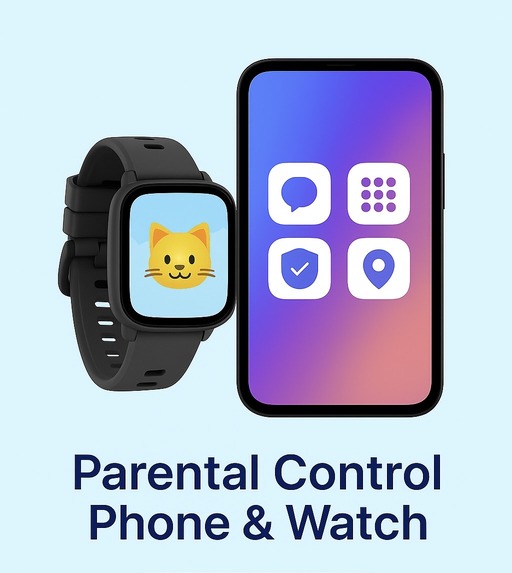
✔ Detects cyberbullying, predators, & threats
✔ Tracks real-time GPS location
✔ Sends instant alerts for risky activity
✔ Blocks explicit, violent, or unsafe websites
✔ Sets screen-time limits and bedtime schedules
✔ Lets parents approve contacts & apps
✔ Keeps data private & secure
📱 Teen Smartphone Habits & Screen Time Boundaries: What the Data Really Shows
Why Screen Time Matters More Than Ever
Smartphones have become a major part of teenage life. From messaging friends to watching videos, the average teen spends hours a day online. But how do teens really feel about it — and how much control do parents try to have?
A 2024 national study by Pew Research explored the tug-of-war between teens’ desire for freedom and parents’ concern about too much screen time. The findings reveal not just numbers, but stories of digital balance for families in everyday life.
How Teens Use Their Phones
- Smartphone access is nearly universal. Almost every teenager has a phone, and most carry it with them throughout the day.
- Daily use is high. Many teens admit to spending several hours on social apps, streaming content, or gaming.
- Feelings are mixed. While teens say phones keep them connected, many also admit they sometimes wish they could “unplug.”
This shows the contradiction: teens see phones as essential, but also recognize the risks of overuse.
Teens on Screen Time Boundaries
When asked about rules at home:
- Many teens said their parents set clear limits on phone use — like no phones at dinner or before bed.
- Others reported having looser boundaries, often negotiated as they got older.
- Interestingly, some teens felt that rules made them safer, while others thought they were “too strict.”
This highlights a generational divide: teens crave independence, while parents worry about wellbeing.
The Push and Pull of Digital Freedom
For teens, phones mean more than entertainment:
- They’re a way to build social identity,
- Stay in touch with friends instantly,
- And access information quickly.
But constant connection has a cost. Too much time online can lead to stress, lost sleep, and family tech conflict when parents push back.
Why This Matters for Parents
The lesson for families isn’t to remove technology — it’s to find balance. Parents who set screen time boundaries and talk openly with their children tend to report fewer conflicts.
Teens may resist rules, but many admit later that boundaries helped them feel healthier.